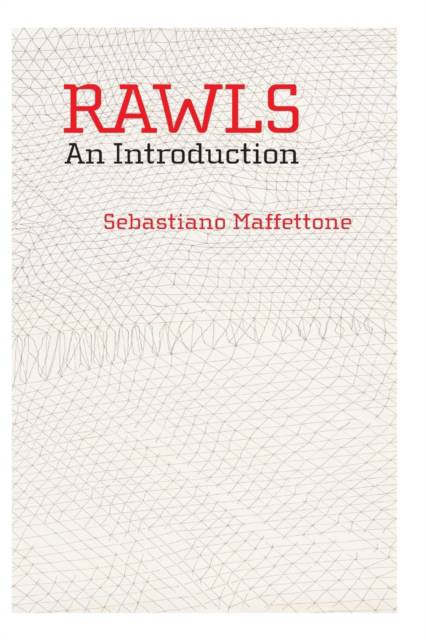
- Afhalen na 1 uur in een winkel met voorraad
- Gratis thuislevering in België vanaf € 30
- Ruim aanbod met 7 miljoen producten
- Afhalen na 1 uur in een winkel met voorraad
- Gratis thuislevering in België vanaf € 30
- Ruim aanbod met 7 miljoen producten
Zoeken
Omschrijving
Rawls: An Introduction is a uniquely comprehensive introduction to the work of the American philosopher John Rawls (1921-2002), who transformed contemporary political philosophy. In the 1950s and 1960s, political philosophy seemed to have reached a dead end characterized by a loose predominance of utilitarian theses. Rawls's
conception of liberalism placed civil liberties and social justice at its core, and his extraordinary influence has only been confirmed by the extent of the criticism he has provoked.
The book is divided into three parts which correspond to Rawls's three major books. The first concentrates on A Theory of Justice (1971) and examines the way in which Rawls's general vision of social justice is presented. Maffettone also includes here a discussion of some of the most important critiques of Rawls. The second part of the book highlights Political Liberalism (1993-6), with a chapter dedicated to the "passage" from Theory of Justice to Political Liberalism. Finally, the third part provides a discussion of The Law of Peoples (1999).
This work is acomprehensive examination of these three major texts by a renowned Rawls scholar and will appeal to all philosophers and social scientists for whom it is essential to understand the key theories of this most influential of political philosophers.
conception of liberalism placed civil liberties and social justice at its core, and his extraordinary influence has only been confirmed by the extent of the criticism he has provoked.
The book is divided into three parts which correspond to Rawls's three major books. The first concentrates on A Theory of Justice (1971) and examines the way in which Rawls's general vision of social justice is presented. Maffettone also includes here a discussion of some of the most important critiques of Rawls. The second part of the book highlights Political Liberalism (1993-6), with a chapter dedicated to the "passage" from Theory of Justice to Political Liberalism. Finally, the third part provides a discussion of The Law of Peoples (1999).
This work is acomprehensive examination of these three major texts by a renowned Rawls scholar and will appeal to all philosophers and social scientists for whom it is essential to understand the key theories of this most influential of political philosophers.
Specificaties
Betrokkenen
- Auteur(s):
- Uitgeverij:
Inhoud
- Aantal bladzijden:
- 300
- Taal:
- Engels
Eigenschappen
- Productcode (EAN):
- 9780745646510
- Verschijningsdatum:
- 25/01/2011
- Uitvoering:
- Paperback
- Formaat:
- Trade paperback (VS)
- Afmetingen:
- 150 mm x 226 mm
- Gewicht:
- 598 g

Alleen bij Standaard Boekhandel
+ 126 punten op je klantenkaart van Standaard Boekhandel
Beoordelingen
We publiceren alleen reviews die voldoen aan de voorwaarden voor reviews. Bekijk onze voorwaarden voor reviews.








